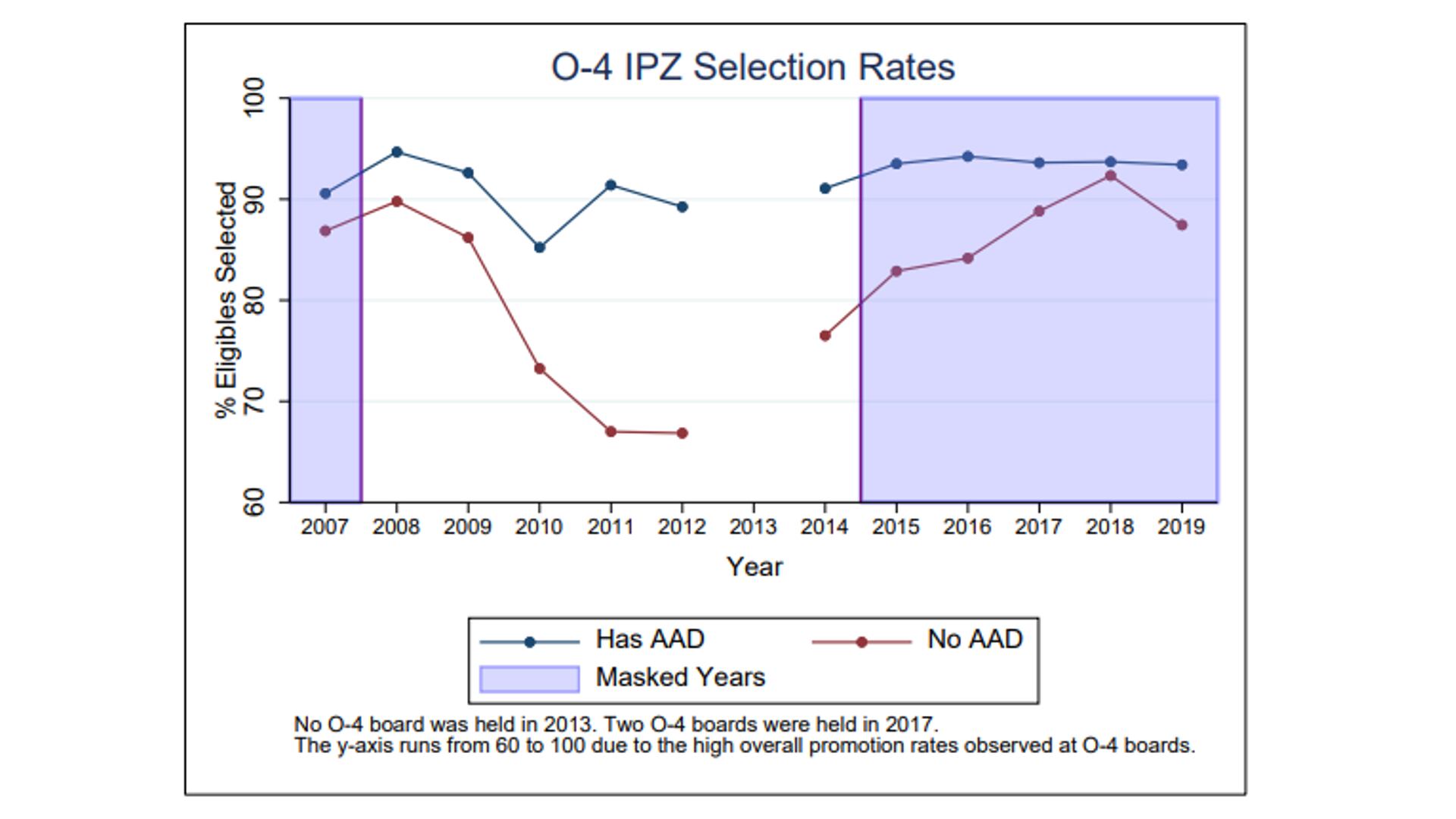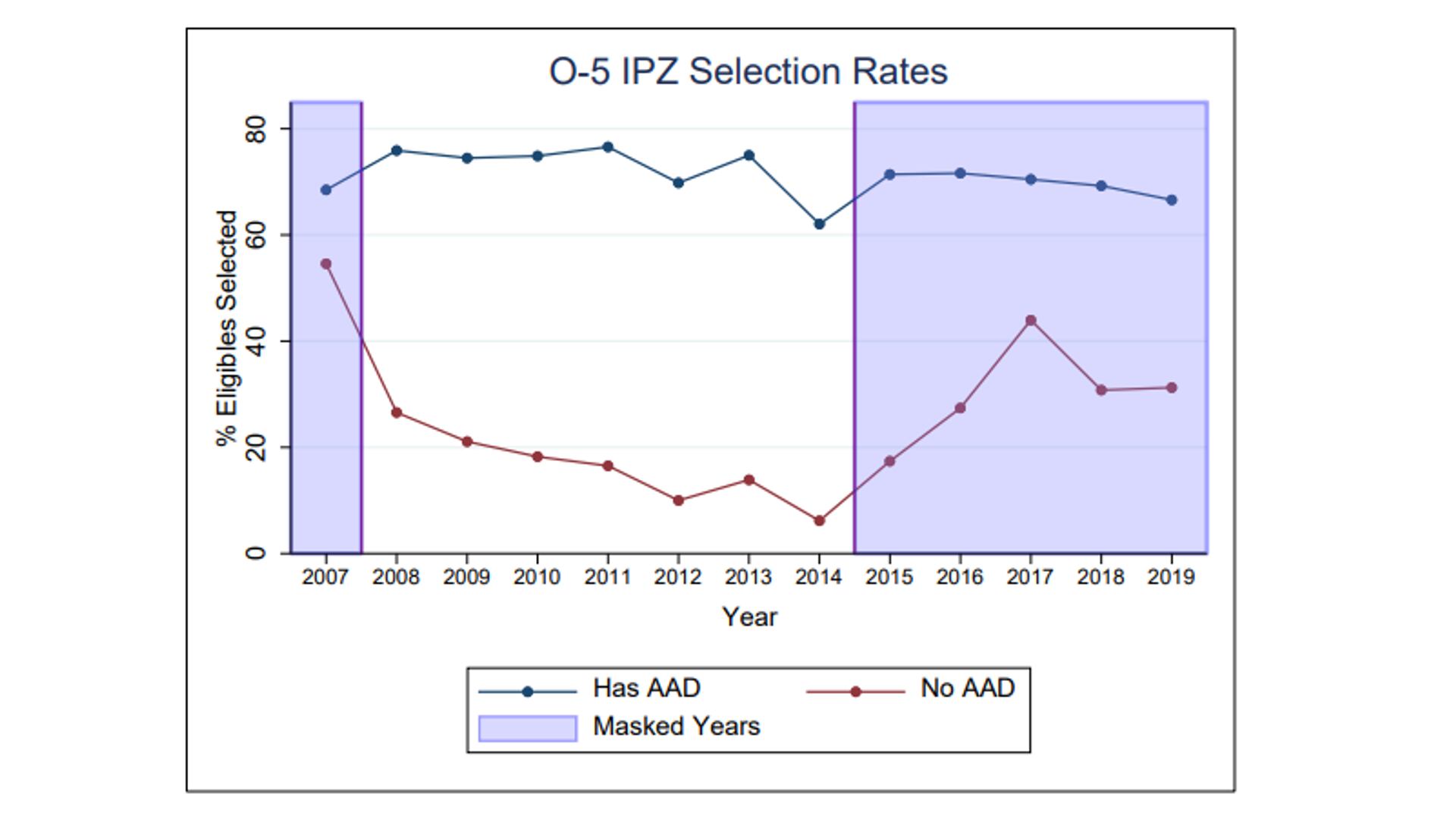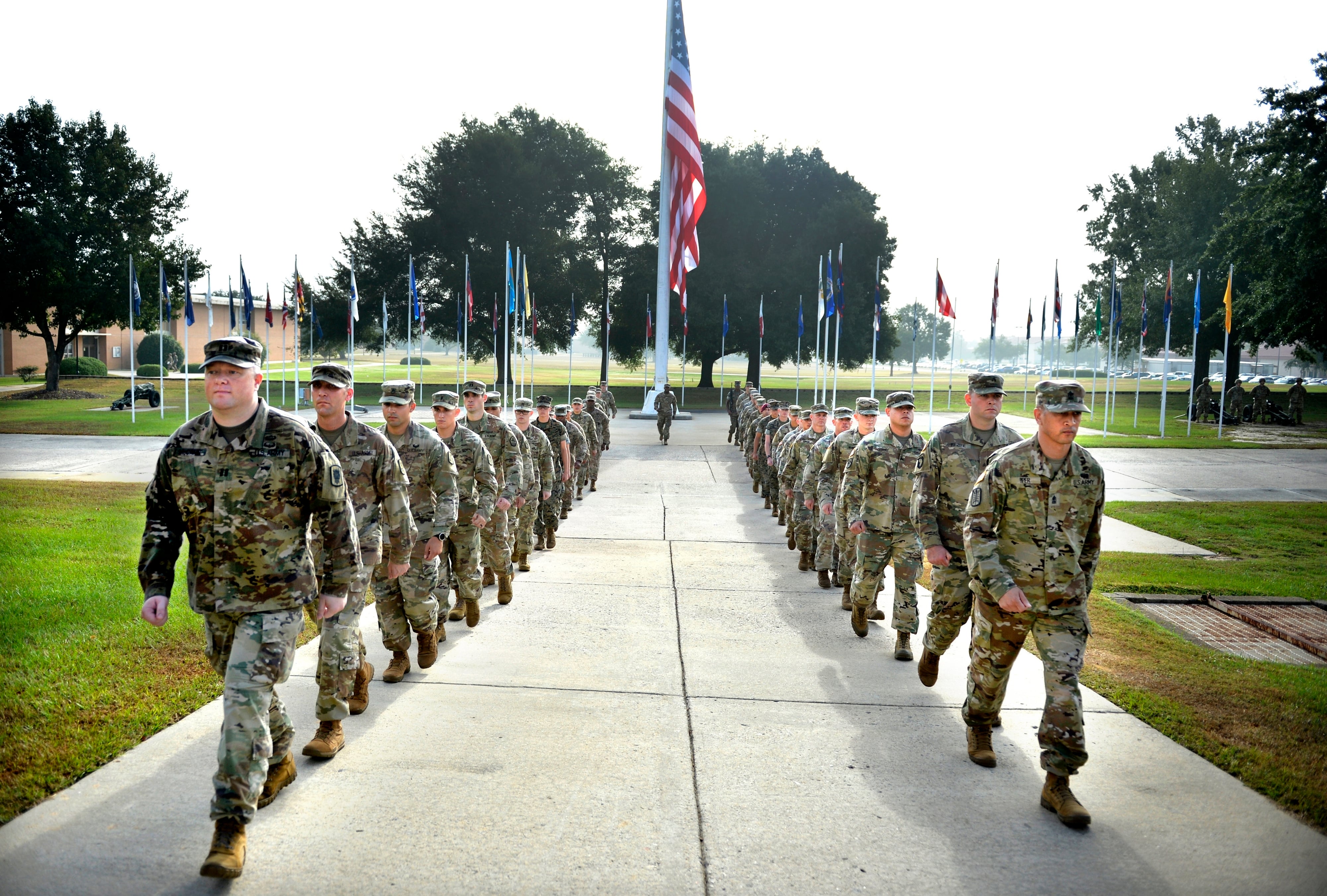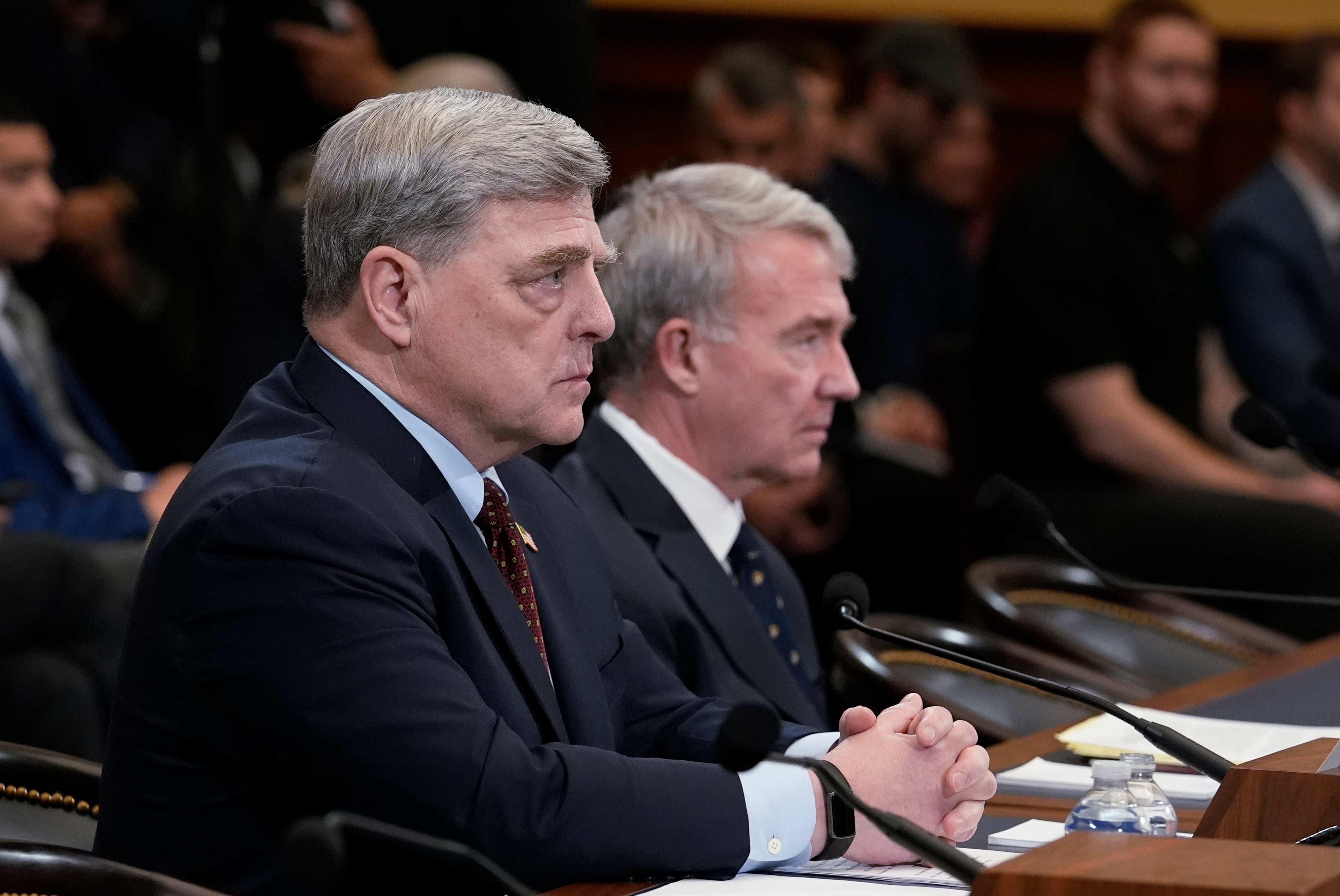What is education good for? The recent flip flopping on whether to consider advanced degrees when promoting mid-level officers shows that the Air Force has struggled with this question.
At times, we have masked, or purposely omitted, advanced academic degrees, or AADs, from officer promotion boards while at other times leaving them viewable. Masking may reduce officers’ incentive to pursue higher-level degrees, weakening our intellectual comparative advantage. On the other hand, the promotion system is meant to advance the best people, not “square fillers.” Masking may focus reviewing officials on relevant job performance metrics rather than distract them with potentially unrelated credentials.
The question over masking mirrors a broader economic debate over how to value the returns of education. The “human capital” view says the more education one receives, the more skilled they become. The signaling view holds that degrees primarily help distinguish high- and low-skilled individuals, since more talented people should find it easier to complete degrees. Under this theory, managers can use degrees as a proxy for productivity. But apart from that, the education itself may provide no inherent benefit.
Economists still debate this, and so does the Air Force — at least as evidenced by its flip flopping on masking. Prior to 1996, officer selection records included degree information comprising the level of education achieved, major, school name and completion year. Advanced academic degree masking first went into place in 1996 for officers eligible to promote to O-3 and O-4: these promotion boards could no longer see any degree information. This policy was extended to O-5 and O-6 boards in 2006. In 2008, however, the policy was reversed; all officer boards unmasked advanced degrees. This reversal was itself reversed in 2014, with masking reinstated for O-4 and O-5 boards. And, most recently, Air Force Secretary Frank Kendall unmasked advanced degrees for all O-4 and O-5 boards effective Jan. 1, 2023.

Our research, covering all active duty Air Force officers from 2007 to 2020, explored how the service’s advanced degree masking policies influence promotion outcomes. Under periods of unmasking, were board members relying on advanced degree information as a signal for productivity? And, when masked, did the lack of degree information change which individuals were selected for promotion?

The results for in-the-promotion zone candidates meeting O-4 and O-5 promotion boards from 2007 to 2019, seen at Figures 1 and 2, provide suggestive evidence that promotion boards reward advanced degrees when visible. Figure 1 shows that in 2012, officers with advanced degrees meeting O-4 boards had a selection rate 22 percentage points higher than their non-advanced degree holding counterparts. This gap narrowed once the 2014 masking policy went into place, reducing to approximately 6 percentage points in 2019. O-5 promotion boards show similar trends, as seen in Figure 2. Non-advanced degree holders meeting O-5 boards during the unmasked period promoted at an average selection rate of 18%. Following masking implementation, their average selection rate rose to 26%, similarly narrowing the gap with advanced degree holders.
We also considered how this policy may have affected different types of career fields. The Air Force was in the middle of a pilot shortage in 2014, and rated officers (pilots, navigators, air battle managers) are less likely to acquire advanced degrees earlier in their career due to their intensive training regimen. We found that the promotion rate to O-4 for rated officers without advanced degrees increased from 80 to 90 percent under masking, which may have helped retain pilots.
Regardless of masking, Figures 1 and 2 clearly show that advanced degree holders are more likely to promote. This premium, however, shrunk by about 50 percent for O-4 boards and 20 percent for O-5 boards because of the 2014 masking policy. This suggests that promotion board members used advanced degrees as discriminators during periods of unmasking. Although advanced degree holders continued to promote at higher rates following masking implementation, it became more difficult for board members to promote based on credentials — and perhaps the remaining premium reflects a positive association between job performance and advanced degrees.
Our results suggest that advanced degree masking policies affect the types of officers the Air Force promotes at O-4 and O-5 boards. We also found that rated officers without advanced degrees experienced a significant jump in their selection rate to O-4, a key outcome considering our continued struggle to fill cockpits. The Air Force’s recent decision to unmask advanced degrees again beginning in 2023 demonstrates that they think highly of continuing education and graduate-level degrees. Is this the right move? Longer-run career outcomes of past promotions could be an important guide for policy steps going forward. If the less-educated officers from the 2014-2019 promotions are performing at similar levels to advanced degree holders, maybe the maskers had a point.
Capt. Katie Albright is an active duty Air Force officer and a 2022 graduate of the Naval Postgraduate School. Maxim Massenkoff is an assistant professor in the Department of Defense Management at the Naval Postgraduate School.
The views and opinions presented herein are those of the authors and do not necessarily represent the views of the Air Force or the Department of Defense.
Have an opinion?
This article is an Op-Ed and as such, the opinions expressed are those of the author. If you would like to respond, or have an editorial of your own you would like to submit, please email us.
Want more perspectives like this sent straight to you? Subscribe to get our Commentary & Opinion newsletter once a week.





